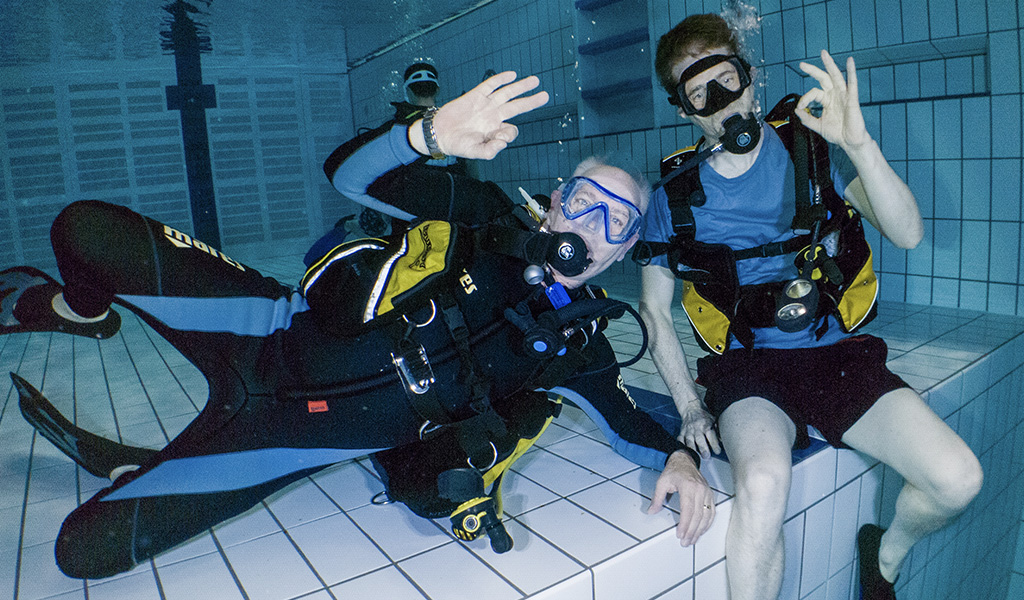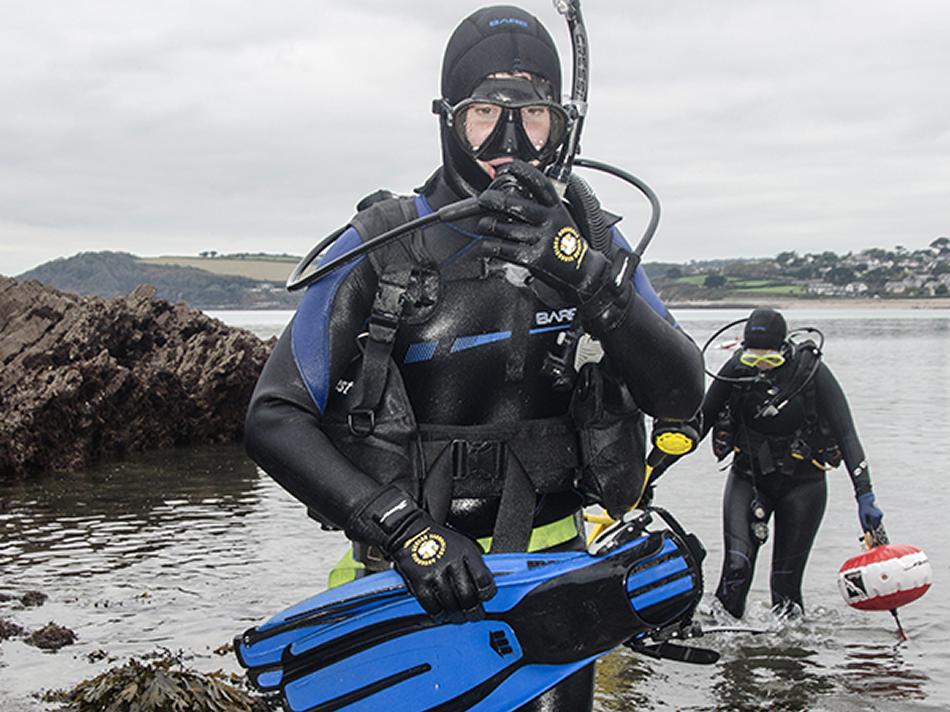
To support members and clubs with the recent news of pools starting to open, BSAC’s Safety and Development Manager Jim Watson shares his advice on getting back to pool diving and training.
Further announcements have taken place during July regarding easing of lockdown restrictions. To follow is some guidance for members and clubs in terms of complying with both government and local facility rules and restrictions, including specific advice with regard to Try Dives and training.
Swimming pools
Although previously delayed, on 9 July the UK government announced that outdoor swimming pools would be able to open from 11 July and indoor pools from 25 July. BSAC had worked with other sports bodies to encourage the government to implement the opening of these essential facilities as soon as possible. Clubs should discuss with their local facilities their specific plans and procedures for reopening.
The water in swimming pools is normally chemically treated to provide an environment that would destroy any virus within a very short contact time. Social distancing measures will need to be considered to ensure that pool users who may have the virus but are asymptomatic do not place others at risk from their exhaled breath. General advice for divers will be very similar to that given in the training, shore diving, snorkelling, and equipment guidance documents already published by BSAC.
Facility rules
Please read the government guidance on sports and leisure facilities.
In addition to complying with government restrictions and their own guidance, pool facility management has a responsibility for the safety of their staff and their customers. In following the guidance provided to them, it is likely that the majority of facility management will initially take a very cautious approach to opening their facilities to different user groups. Scuba diving is most likely one of the more complex and least-understood activities to use their facilities.
Concerns of the facility management might include:
- Introduction of substantial amounts of equipment from outside with little knowledge of the state of contamination
- Impact of removal of equipment after the session and the potential to spread pool water throughout the facility
- Training involves close personal contact (especially with rescue skills)
Clubs can minimise many of these concerns by maintaining open discussion channels with the facility's management and remaining sympathetic to any concerns raised. It might be helpful to share relevant guidance documents with the facility management. It should be noted that a number of managed inland dive sites, who are fully familiar with the activities of divers, initially opened up only for diving and not training activities.
See BSAC's Swimming pool guidance for more detail
Training
Training is our primary objective when using swimming pools and, as noted above, our activities may raise concerns with the pool management. Training activities that take place entirely underwater will present the least amount of risk, as instructors and students will be entirely surrounded by the treated water in the pool, and so any initial return to the pool should focus mainly on underwater skills. You could then progress to surface skills, such as surfacing procedures for controlled buoyant lift (CBL) and alternate source (AS) skills, as you develop a sound working relationship and understanding with the pool management, and then progress to rescue towing.
Snorkel training could progress in a similarly planned and developing manner.
Zoning and mixed activities
In the initial stages of the re-opening of swimming pools, it is likely that there will be restrictions on the number of users allowed into a pool at any one time. Government guidance includes “Pools: Swimming pools should restrict numbers to allow 3sqm per bather.” There may also be additional restrictions on the types of activity allowed. Both of these could result in restrictions on the mixing of activities during the same session (scuba, snorkelling and swimming).
Many clubs typically have a mix of activities during their normal sessions. Formulating a plan on how this mix can continue without increasing the risk of virus transmission and/or raising concerns of the facilities management can contribute significantly to encouraging open and constructive discussion. Using lanes and other zoning methods can be part of the solution but you need to carefully consider the needs of each group. Scuba divers needing more use of the deep end, snorkelers can swim in buddy pairs within a wide lane but then surface dive below oncoming pairs in a co-ordinated procedure etc.
Try Dives
One benefit of club training, which can be used to reassure the facility management, is that all members are part of an organised activity and understand the methods and procedures required. This gives some reassurance to everyone that an organised group can be left to be responsible for their own activity, thereby lightening the load on the facility management. Club members have also been through a formal screening process for medical fitness that provides some assurance of their fitness to dive and their general wellbeing.
Try Dives are an essential recruitment tool for clubs and centres alike. Try Dive students, however, are often less disciplined than club members and in short ‘don’t know what they don’t know’. Likewise, their recent medical status is less likely to be known and they may be less appreciative of the additional risks Covid-19 may present to divers or may be concerned about the use of scuba equipment.
The most important consideration in offering Try Dives is that the scuba equipment used MUST ONLY be used by a single student during a session and not used by anyone else. Once used, the equipment must be cleaned, disinfected, and thoroughly dried following use as detailed in the Equipment guidance document.
Before considering offering Try Dives, you should have established a return to training activities in the pool and ensure the facility management are happy with your arrangements. You should then discuss with the pool management any plans you have for offering Try Dives and confirm your risk assessment and mitigation, which should include how you are going to advise the potential new members about the procedures operational at the pool itself.
Clubs should be conscious that the swimming pool management may well be overly cautious during the reopening of their facilities, and working with them will help to reassure that you both have due consideration for the health and wellbeing of all concerned.

 Author: Jim Watson | Posted 24 Jul 2020
Author: Jim Watson | Posted 24 Jul 2020



